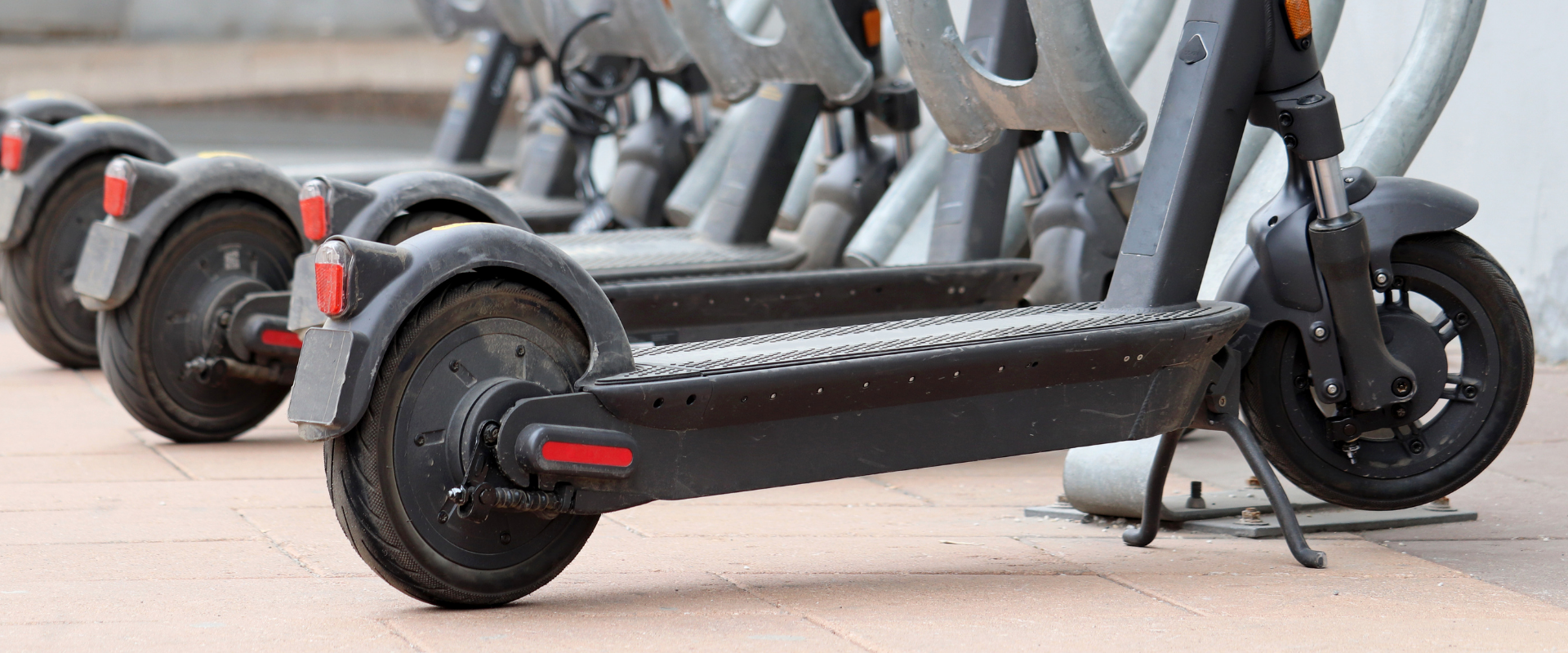E-scooters are increasingly popular across the world and there is no denying they can be useful, particularly during the current pandemic when the idea of shared public transport isn’t appealing.

Ireland lags behind the rest of Europe with regards to legislation around the use of e-scooters, despite their evident popularity. It is anticipated that the keenly awaited Road Traffic (Amendment) (Personal Light Electric Vehicles) Bill 2021 (The Bill), which addresses e-scooters will be placed before the Dáil before the end of the year.
E-scooters are increasingly popular across the world and there is no denying they can be useful, particularly during the current pandemic when the idea of shared public transport isn’t appealing. They are also popular for their eco-credentials as increased e-scooter usage should result in less congestion, particularly in urban centres. Despite the fact that e-scooters are currently illegal in Ireland, increasing numbers of them are zipping around our streets. The new legislation will not impose an insurance requirement, for private owners at least, which is likely to increase their popularity even further as the cost of insurance in Ireland can be prohibitive, particularly for the young.
There are a number of e-scooter operators keen to enter the Irish market for shared scooters, both local and international, such as Bird, Bolt, Dott, Tier and Voi so the latest announcement from the Dáil will be closely monitored as competition will be fierce for the limited number of operator licences that are likely to be available.
Ireland is pushing ahead with a policy to encourage green sustainable transport options to include walking and cycling but there are concerns about whether or not the infrastructure is there to support this safely, particularly outside the urban centres. There’s no doubt this agenda has been accelerated as result of covid-19 and a lot more provision has been made for cycling in many places over the last year or so.
As things stand, e-scooters are considered to be mechanically propelled vehicles as defined in the Road Traffic Act 1961 therefore they ought to be insured, taxed and the user should have a driving licence. It is not possible to insure or tax e-scooters, therefore users are open to prosecution under current road traffic laws for using the vehicle and penalties can include penalty points, fixed charge notices, fines and seizure of the vehicle.
When the new legislation is enacted e-scooters will be classified as personal light electric vehicles and they will essentially be on the same footing as bicycles. Tax, insurance and driving licences will not be required for the use of e-scooters.

E-scooter and e-bike safety is one of the main concerns although arguably bicycles are capable of similar or greater speeds and come with the same risks. Some stakeholders have called for shared vehicle providers to have comprehensive insurance, but this will not address the issue of those riding privately owned e-scooters who will not require insurance. Sales of e-scooters have been strong so there are likely to be a considerable number of privately owned e-scooters around. The Bill sets a minimum user age of 16 along with a maximum speed limit of 25kmph and the stipulation that the electric motor should not exceed 250 watts. The Bill also bans the use of mobile phones whilst driving PLEVs. Protective clothing, including helmets will not be mandatory under the proposed Bill.
It is clear from the evidence available elsewhere that legalising e-scooters has led to an increase in injuries, both of the user themselves, and third parties such as pedestrians and cyclists. E-scooters are less stable than motorbikes or bicycles therefore the user is more vulnerable, particularly on the road. Their speed also makes them potentially hazardous to pedestrians on the pavement. The evidence tends to suggest that the users themselves are at most risk rather than third parties and users should consider investing in personal accident cover in the event that they injure themselves. E-scooter users should bear in mind that third party claims for damage or injury caused could be brought against them personally, or against their home insurer if the policy covers the e-scooter outside the home. Despite the introduction of the Judicial Council Guidelines, injury claims can be very costly in Ireland and for those with the means to be pursued personally for damages, a judgment could come as a significant financial shock. Litigation costs generally are quite high and even relatively minor property damage claims can be quite costly.
In advance of the new legislation, insurers operating in the Irish market should consider reviewing their policy wording, depending on whether or not they intend to cover e-scooter usage. There may also be an opportunity for the introduction of a new product in the market dealing specifically with e-scooters and personal accident cover – even though insurance is not mandatory – as the more financially secure user may prefer the peace of mind of knowing that cover is in place.
For more information about the Bill and its possible impact or to discuss any motor liability issue in Ireland, please do not hesitate to contact Eva Bashford.
Publication Author:

Eva Bashford
Partner
Related Insights

Update to Ireland’s Occupiers’ Liability Law
For almost 30 years, the Occupiers’ Liability Act, 1995 (“the 1995 Act”) has represented the settled statutory position in Ireland...

Personal Injuries Assessment Board in Ireland – October Update
Following on from the news release indicating that injury claim awards in Ireland have been reduced by 40% since the...

The Personal Injuries Assessment Board has released its annual report for 2020
The total number of applications received by the Personal Injuries Assessment Board (“PIAB”) fell by 16% in 2020 to 26,009...

Perjury put on statutory footing in Ireland
The long-awaited Criminal Justice (Perjury and Related Offences) Bill 2018 has been passed by the Oireachtas and it will now be signed...




